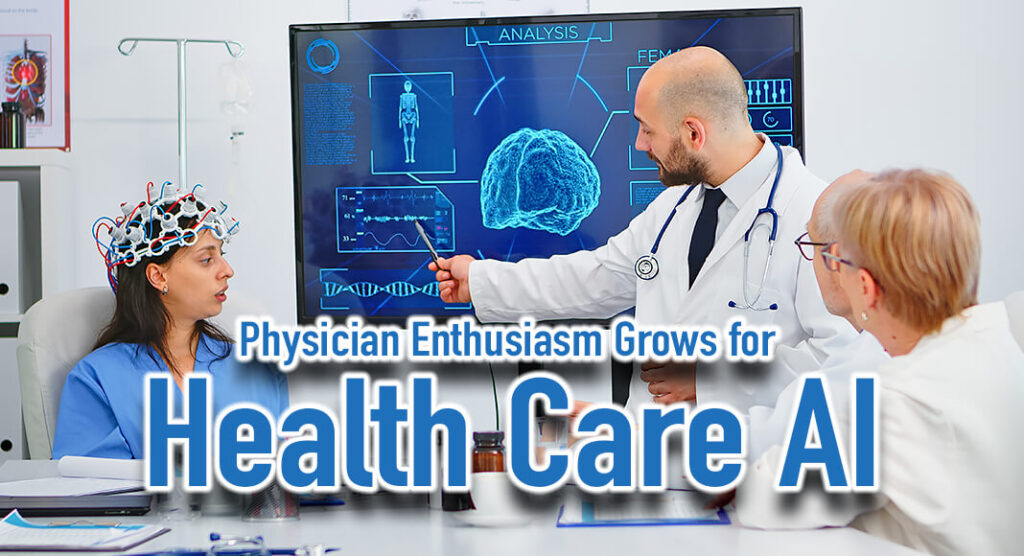
Mega Doctor News
AMERICAN MEDICAL ASSOCIATION – CHICAGO – The use of augmented intelligence (AI)—often called artificial intelligence— in health care evokes greater enthusiasm and less apprehension than it once did among a growing number of physicians, according to a new survey (PDF) by the American Medical Association (AMA). However, many physicians are at a crossroads and remain guarded with their enthusiasm for health AI due to lingering concerns.
The latest edition of AMA’s Augmented Intelligence Research survey examined changes in physician sentiment towards health care AI from August 2023 to November2024 and offers deep insight into evolving physician perspectives on the adoption and use of health AI.
The portion of physicians whose enthusiasm exceeded their concerns with health AI increased to 35% in 2024 from 30% in 2023. While the portion of physicians whose concerns exceeded their enthusiasm for health AI decreased to 25% in 2024 from 29% in 2023. Two in five physicians remain equally excited and concerned about health AI with almost no change between 2023 and 2024.
“The AMA survey illustrates that physicians are increasingly intrigued by the assistive role of health AI and the potential of AI-enable tools to reduce administrative burdens, enhance diagnostic accuracy, and personalize treatments,” said AMA Immediate Past President Jesse M. Ehrenfeld, M.D., M.P.H. “But there remain unresolved physician concerns with the design of health AI and the potential of flawed AI-enabled tools to put privacy at risk, integrate poorly with EHR systems, offer incorrect conclusions or recommendations, and introduce new liability concerns. Increased oversight ranked as the top regulatory action needed to increase physician confidence and adoption of AI.”
Among the key findings, the survey showed:
A majority (68%) of physicians surveyed in 2024 indicated they see definite or some advantage to using AI tools, up slightly from 65% in 2023.
About three in five (66%) physicians surveyed in 2024 indicated they currently use AI in their practice, up significantly from 38% in 2023.
The top area of opportunity for AI according to 57% of physicians surveyed in 2024 was “addressing administrative burden through automation,” up slightly from 56% in 2023.
According to physicians surveyed in 2024, the top attributes required to advance physician adoption of AI tools were a designated feedback channel (88%), data privacy assurances (87%), and EHR integration (84%). In 2023, the top attributes were data privacy assurances (87%), not being held liable for AI model errors (87%), and medical liability coverage (86%).
The AMA’s work continues to support the development of high-quality, clinically validated AI that is deployed in a responsible, ethical, and transparent manner with patient safety being the first and foremost concern. The AMA is dedicated to shaping a future that ensures only safe, high-quality, and unbiased AI products are brought to market and has issued principles to guide the responsible development and deployment and use of AI (PDF), ensuring that these technologies contribute positively to the future of health care.









